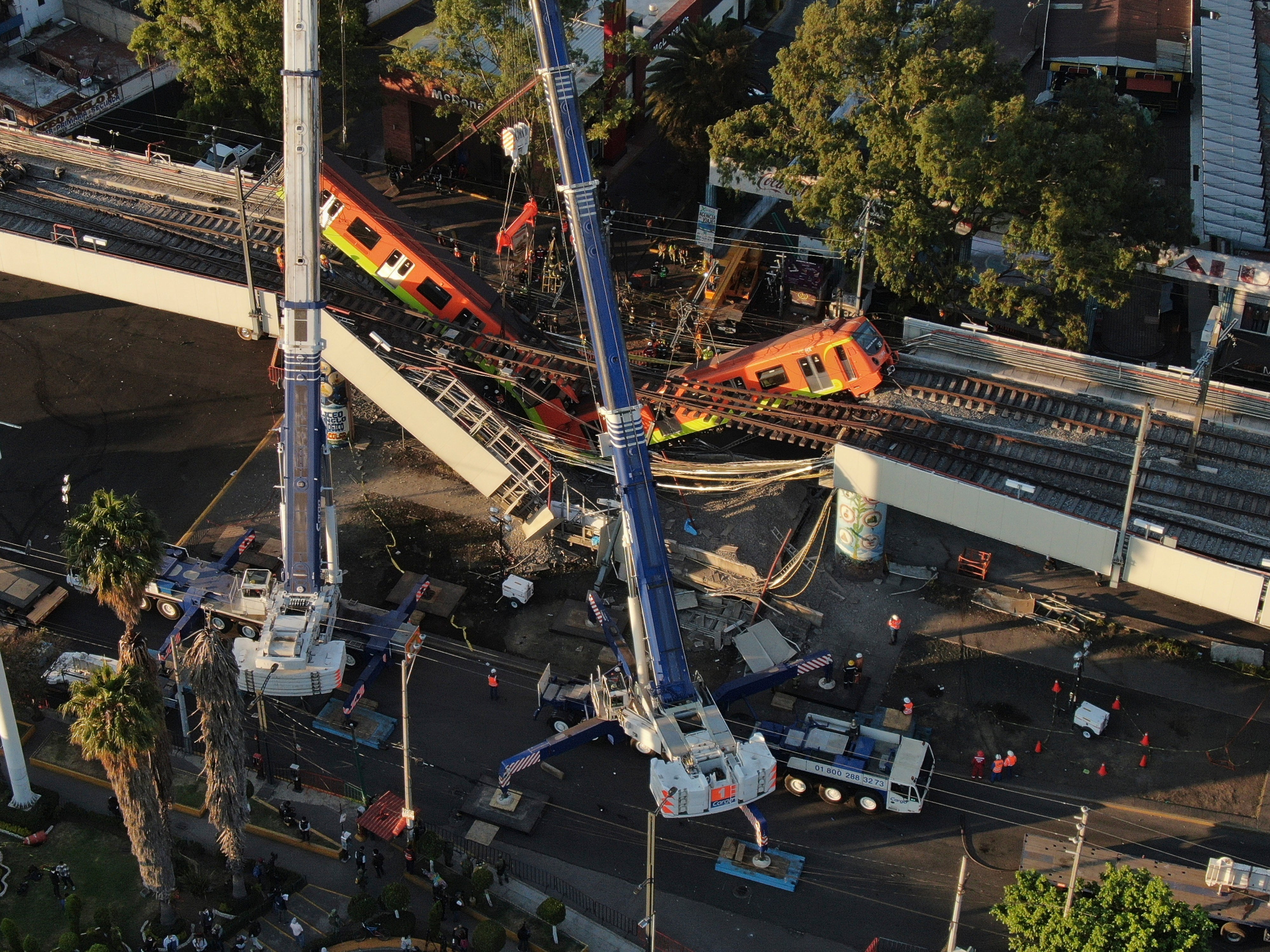Mea Culpa: under the way and over the pass
John Rentoul’s regular round-up of errors and omissions


In our report of a train crash in Mexico, we wrote: “The concrete subway overpass partially collapsed, and images and videos from the scene showed parts of a train hanging in mid-air for hours.” As Henry Peacock pointed out this was confusing. A “subway overpass” is a curious combination of up and down, a bit like the sign on the Whitechapel Underground platform in London that says “Overground” with a sign pointing down the stairs.
A simpler way of saying “subway overpass” is “railway bridge”, because a subway is American for metro (or Underground if you’re from London) and a more natural way of saying “parts of a train” is “carriages”. I am also not sure what the difference is between a partial collapse and a collapse.
Insignificant digits: Spurious accuracy is something to which we journalists are prone. In our hunger for facts and our eagerness to pass them on, we sometimes get lost in detail. Last week we reported: “More than 145,765 Covid infections have since been detected that would not have otherwise been found, the health department says.” If it is more than that number, the precise number is irrelevant. Even if the precise number were relevant, my rule of thumb is that three significant digits is all that you can expect the reader to absorb. “More than 145,000” gives the reader more than enough information to make sense of the story. Thanks to Roger Thetford for pointing this out.
Killer variant: Another use of numbers, in an editorial last week, confused some readers. We said: “The proportion of people dying from coronavirus in poor and low- and middle-income countries has risen from less than 10 per cent to more than 30 per cent in the past month.” As Linda Beeley wrote to say, that is ambiguous, because we did not say that the proportion was of the number of people dying from coronavirus across the world. It could have been read to refer to the proportion of people in those countries who were dying of coronavirus – which would be a devastatingly high fatality rate.
We should have said something like: “Low- and middle-income countries accounted for a sharply increased share of the world’s coronavirus deaths over the past month.” The actual percentages added little.
Under or over, part II: Linda also drew my attention to this common mistake in another article: “The impact of the streaming service on the modern TV landscape cannot be understated.” And John Wilkin spotted the same mistake, in a different form, in a quotation from the solicitor for two former soldiers in Northern Ireland, the case against whom collapsed: “The stress of these proceedings on the soldiers and their families cannot be underestimated.” These should have been “overstated” and “overestimated”, respectively.
Bang the drum: In an article about the diplomatic skirmishes between the UK and the EU, we said that, “in Northern Ireland, they are already building to something of a crescendo”. As John Schluter wrote to say, it is the building that is the crescendo. I can see why people shy away from writing “building to a climax”, but there must be other words. “Crisis” is the obvious one, although it doesn’t really have the drama of the clashing of cymbals and the banging of drums, but is that really the right metaphor for the exchanging of pointed communiques anyway?



Join our commenting forum
Join thought-provoking conversations, follow other Independent readers and see their replies
Comments